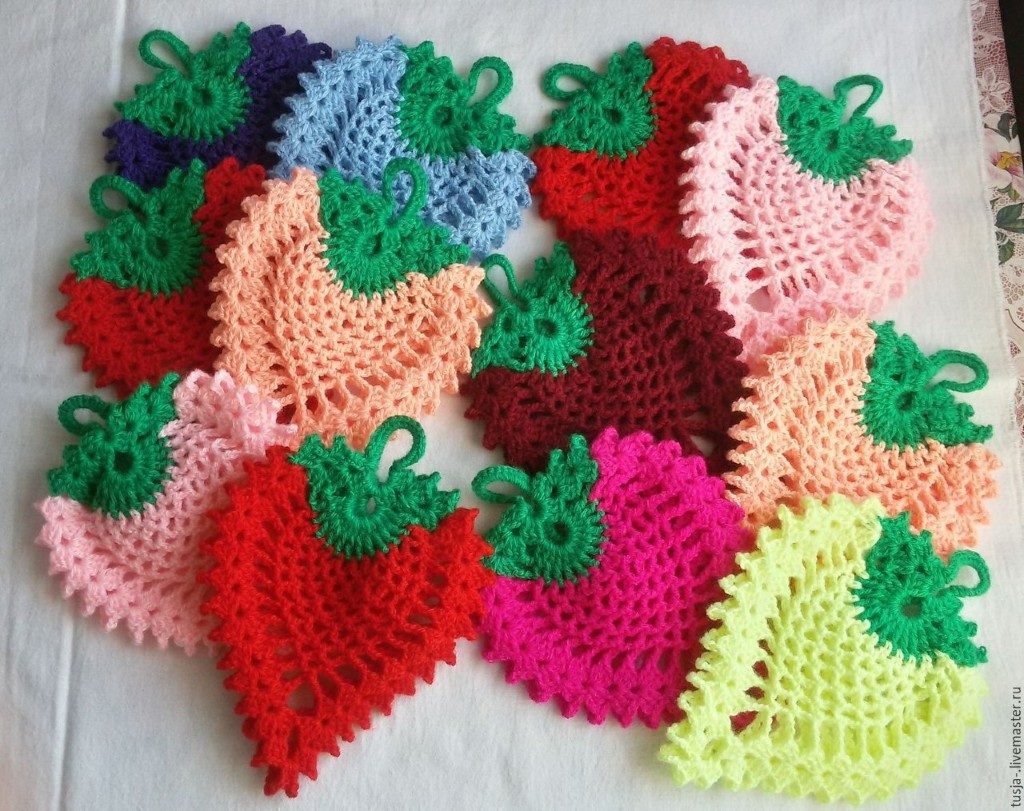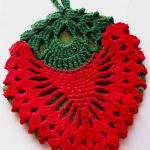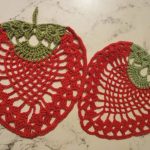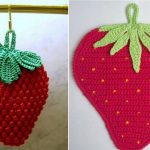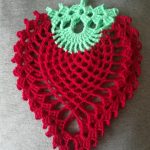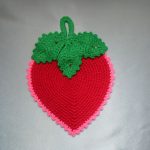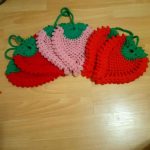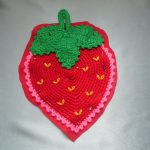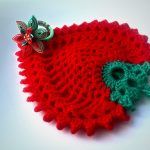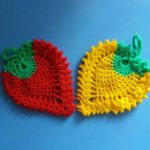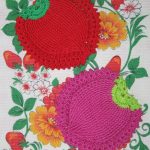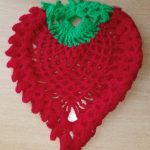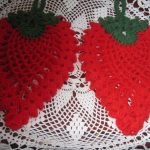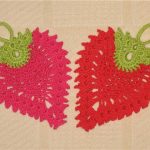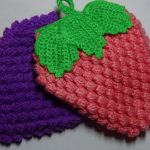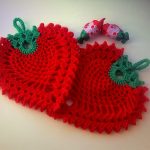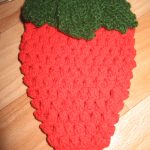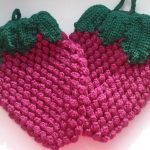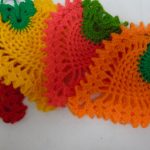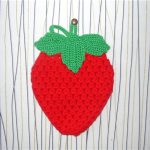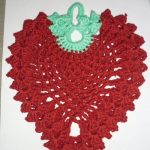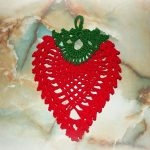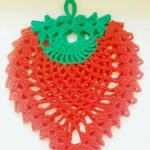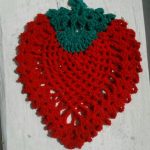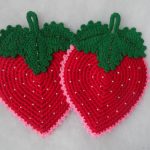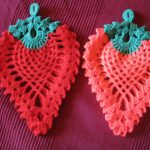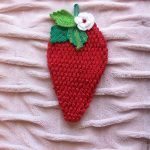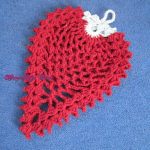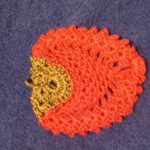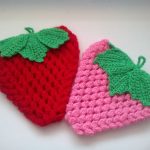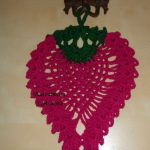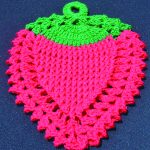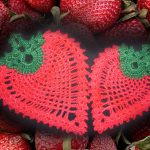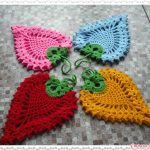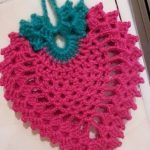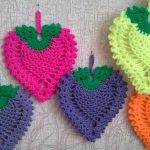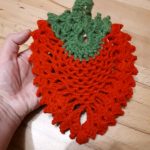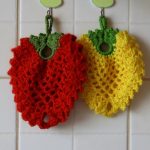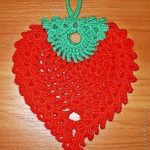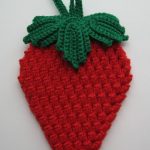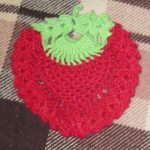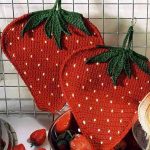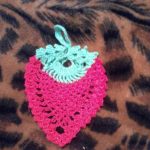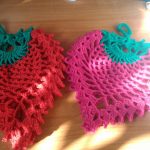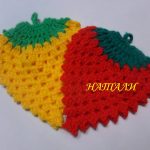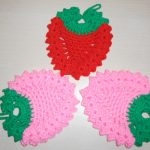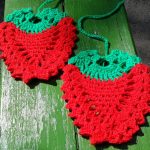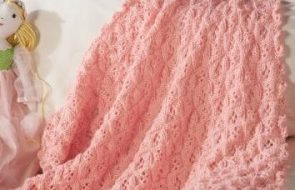A cute bright potholder berry will become a kitchen decoration or a gift for a friend. Patterns and descriptions will help even a beginner knitter to create a strawberry.
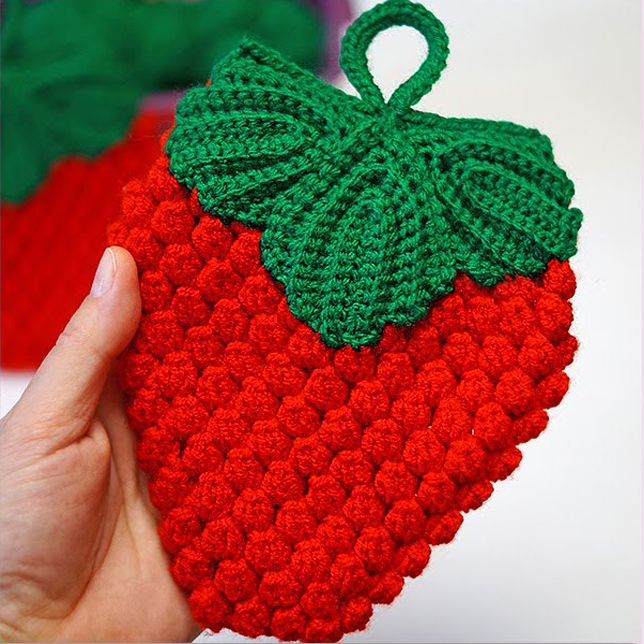
Content
Strawberry crochet potholder for beginners
For work you will need semi-wool yarn and a corresponding hook. It is important to decide on the purpose of the product. For a decorative model, acrylic threads are suitable. For a practical potholder that will be used in the kitchen, it is better to take semi-wool yarn or yarn with the addition of cotton. Such a potholder will not heat up from hot dishes and will become an assistant to the hostess.
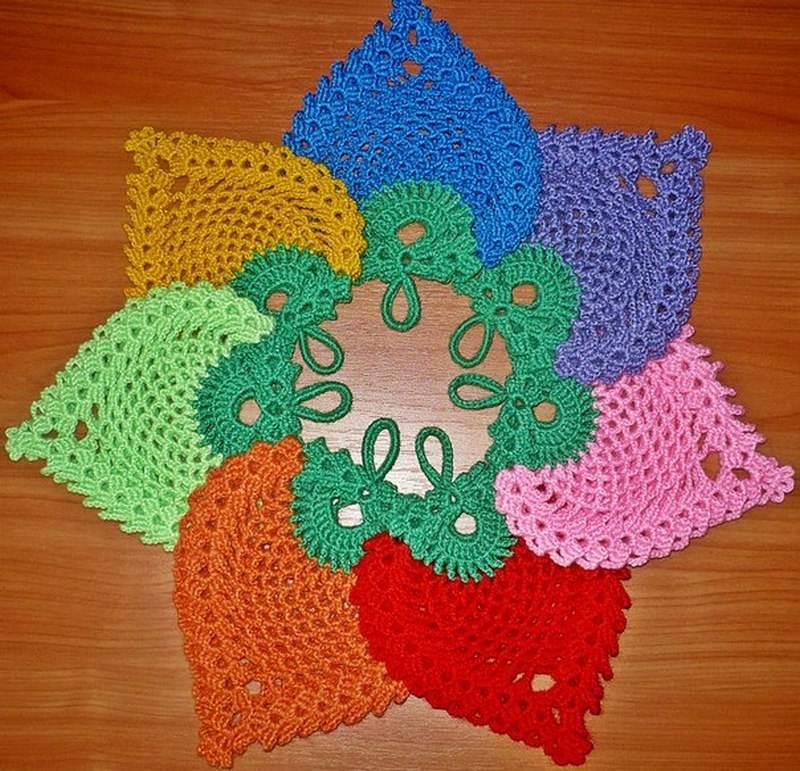
What you will need for the job
To make a dense berry you will need the following materials and tools.
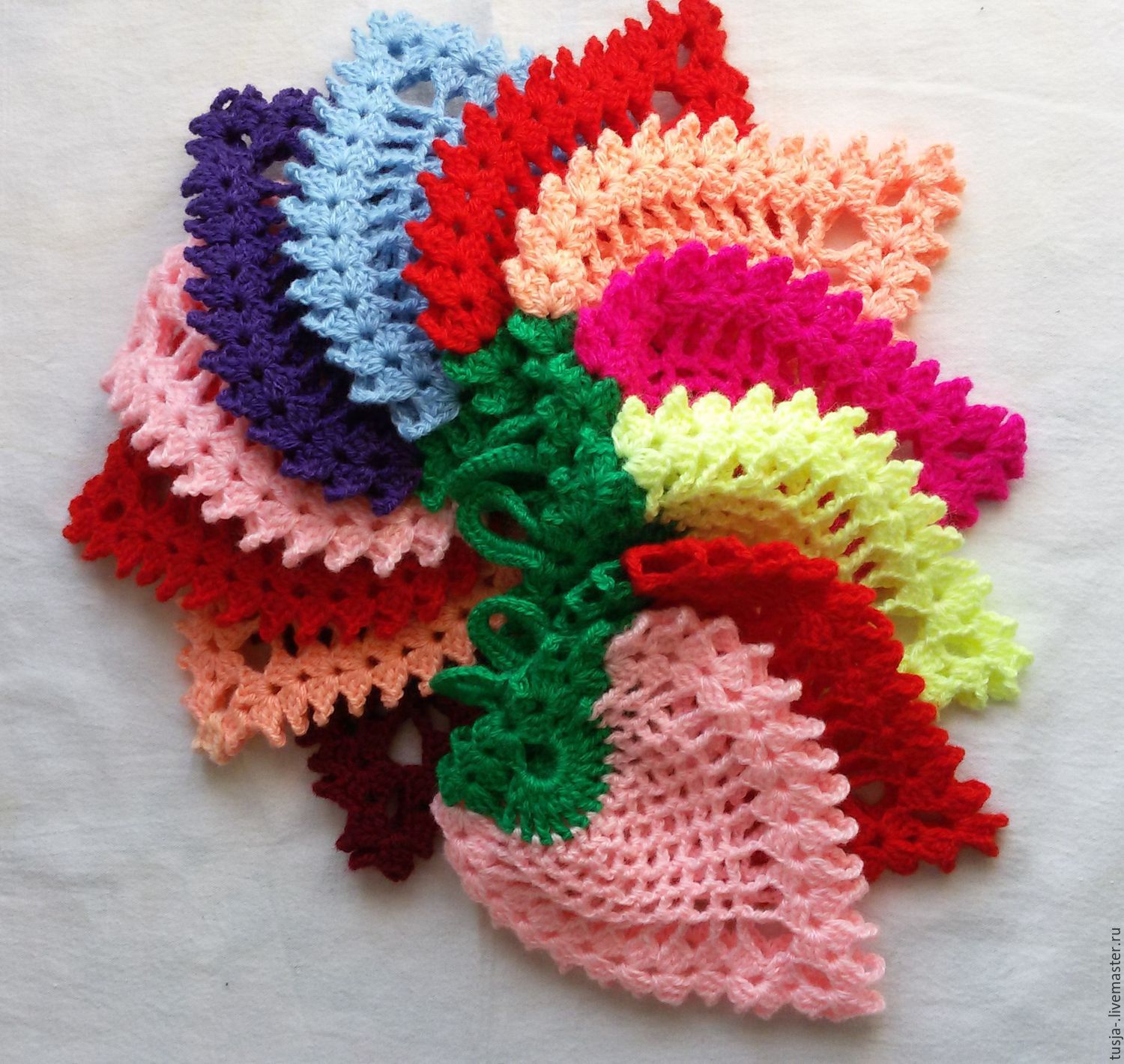
- Thread 200 m thick per 100 g. You will need a skein of red, some green threads and some black leftovers for decoration.
- Take hook No. 3 or 3.5.
- Thick needle.
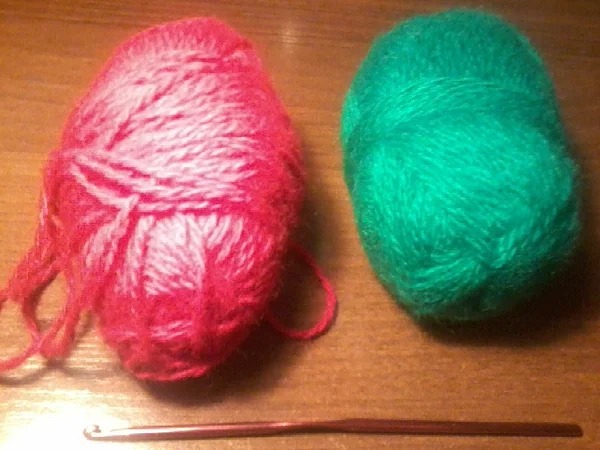
Conventional designations
- air loop – chain stitch;
- st. – single crochet;
- st.n. – double crochet;
- st2n. – double crochet
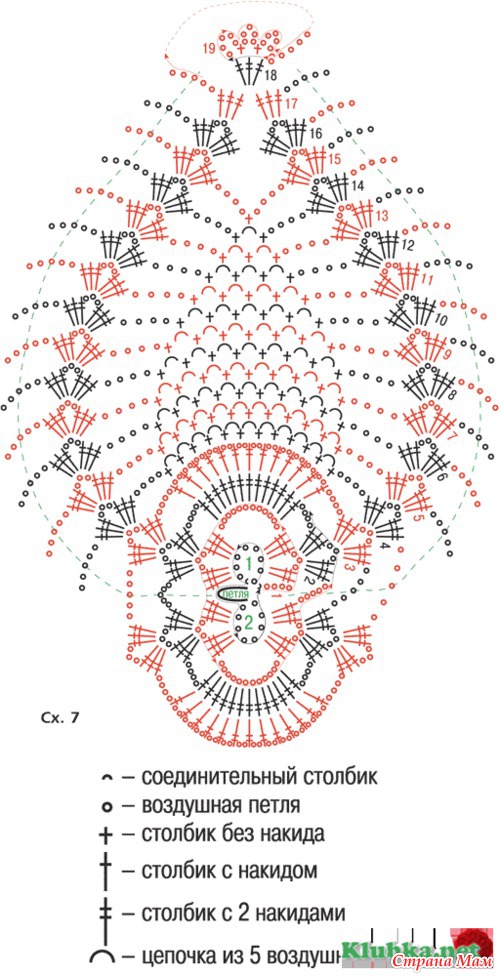
DIY crochet potholder
Start knitting 3 ch and close in a circle with a slip stitch. The product is knitted in circular rows.
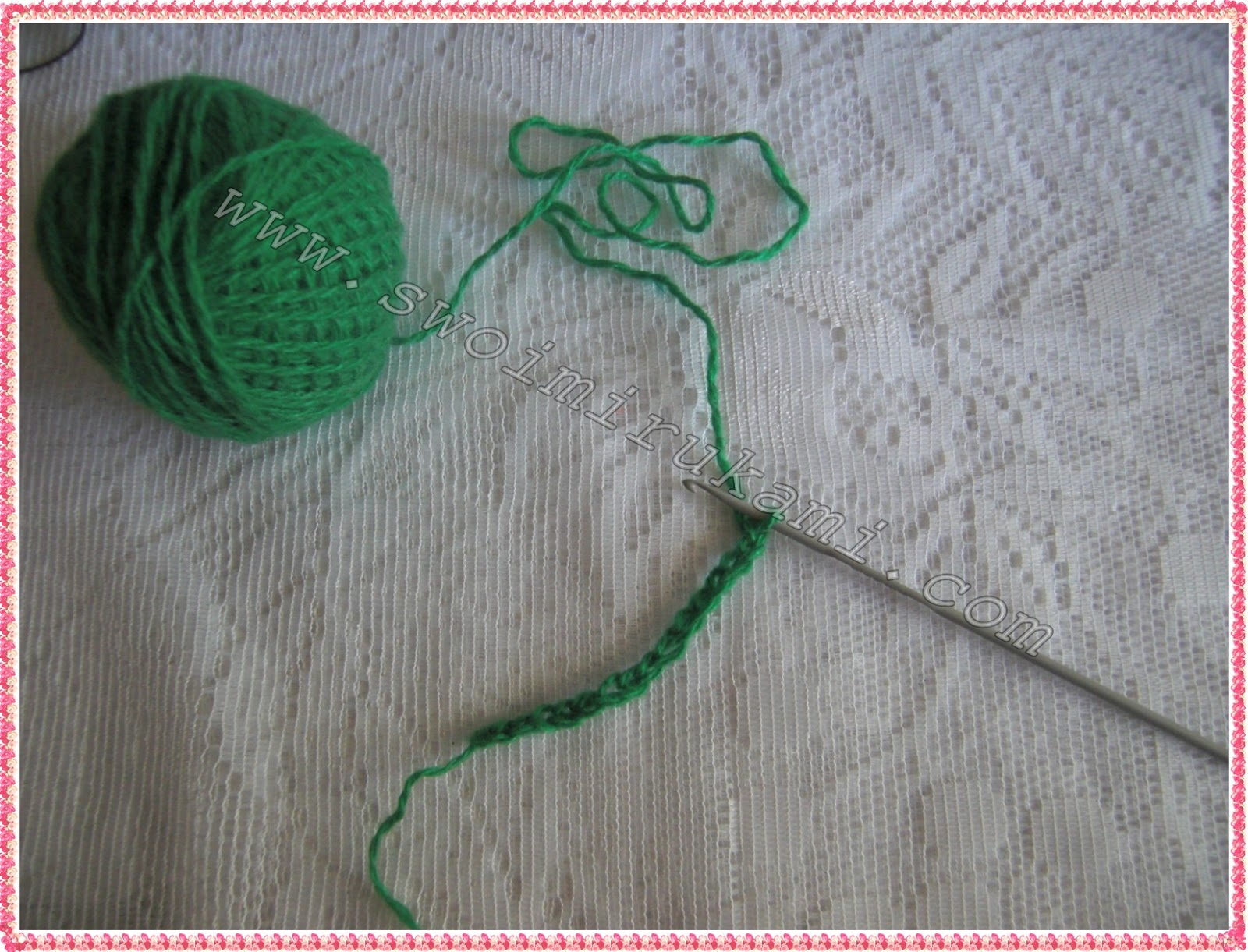
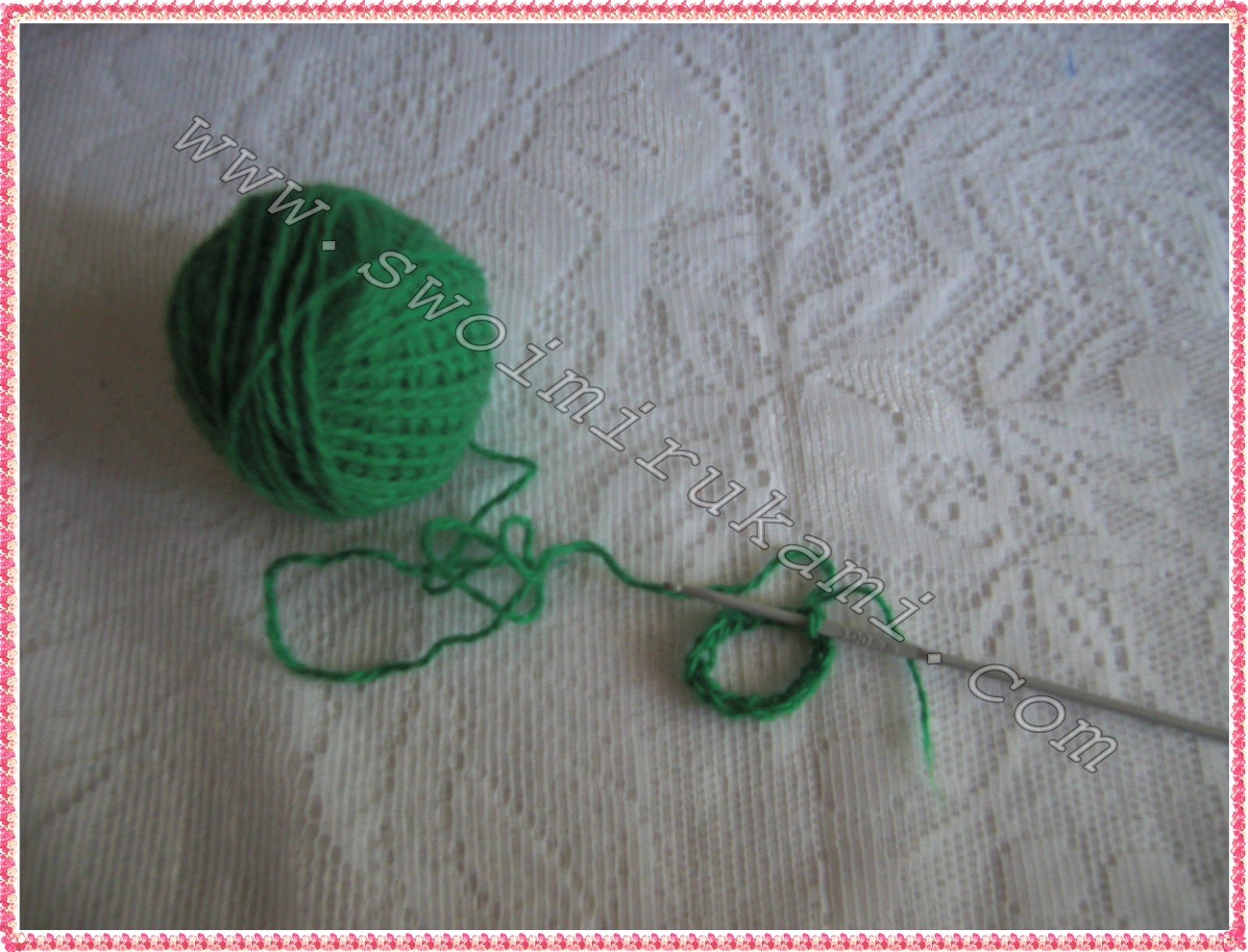
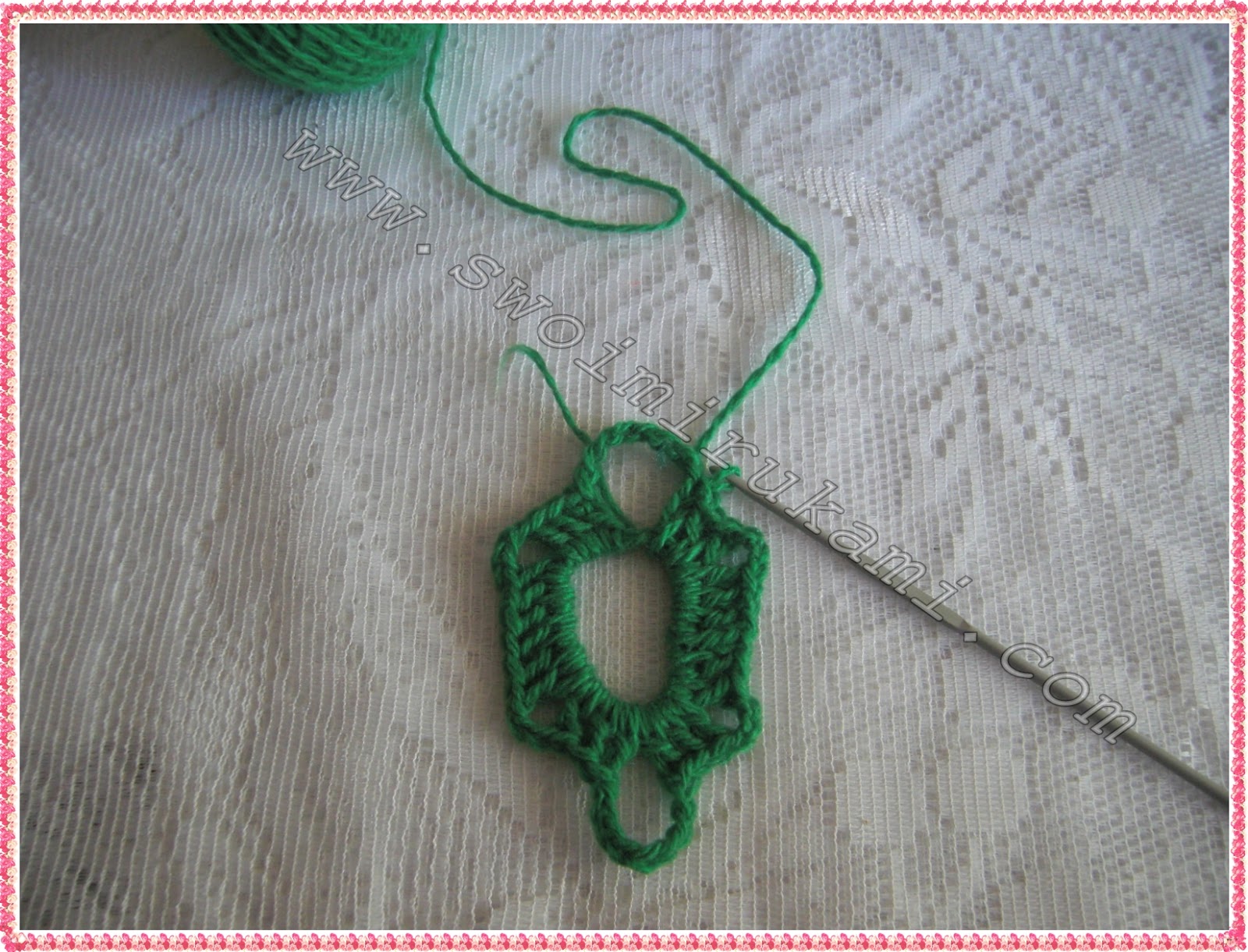
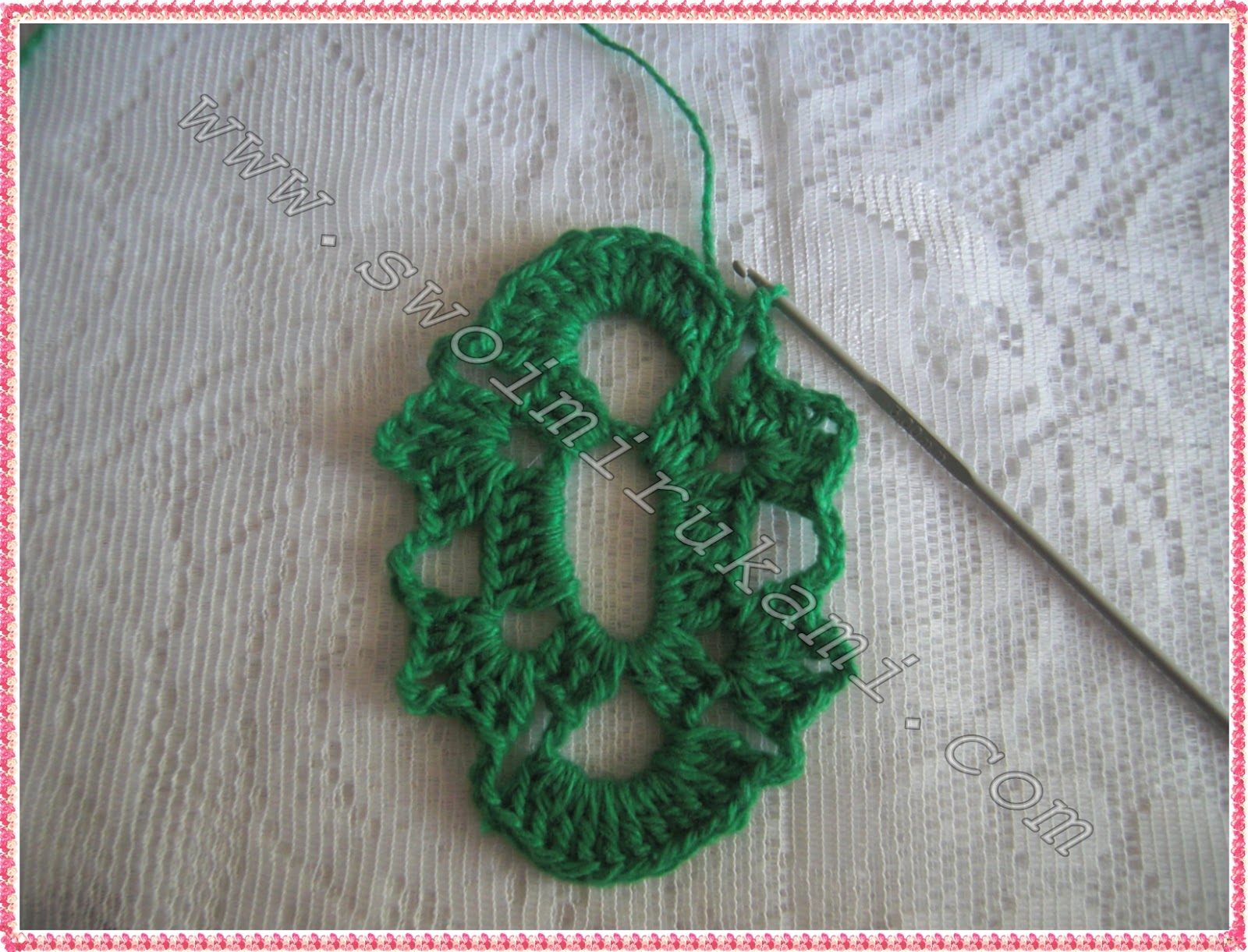
Important! To make the circle even, add the stitches evenly. The first row is 6, the second is 12, the third is 18. Each subsequent row should be longer than the previous one by the number of stitches in the first row.
- Knit 3 rows in a circle. As a result, you should get 18 columns.
- Mark the beginning of the next row with a thread of a different color.
- Knit 9 sts, making increases in every 3rd loop, 2 ch sts, and a column in the previous loop.
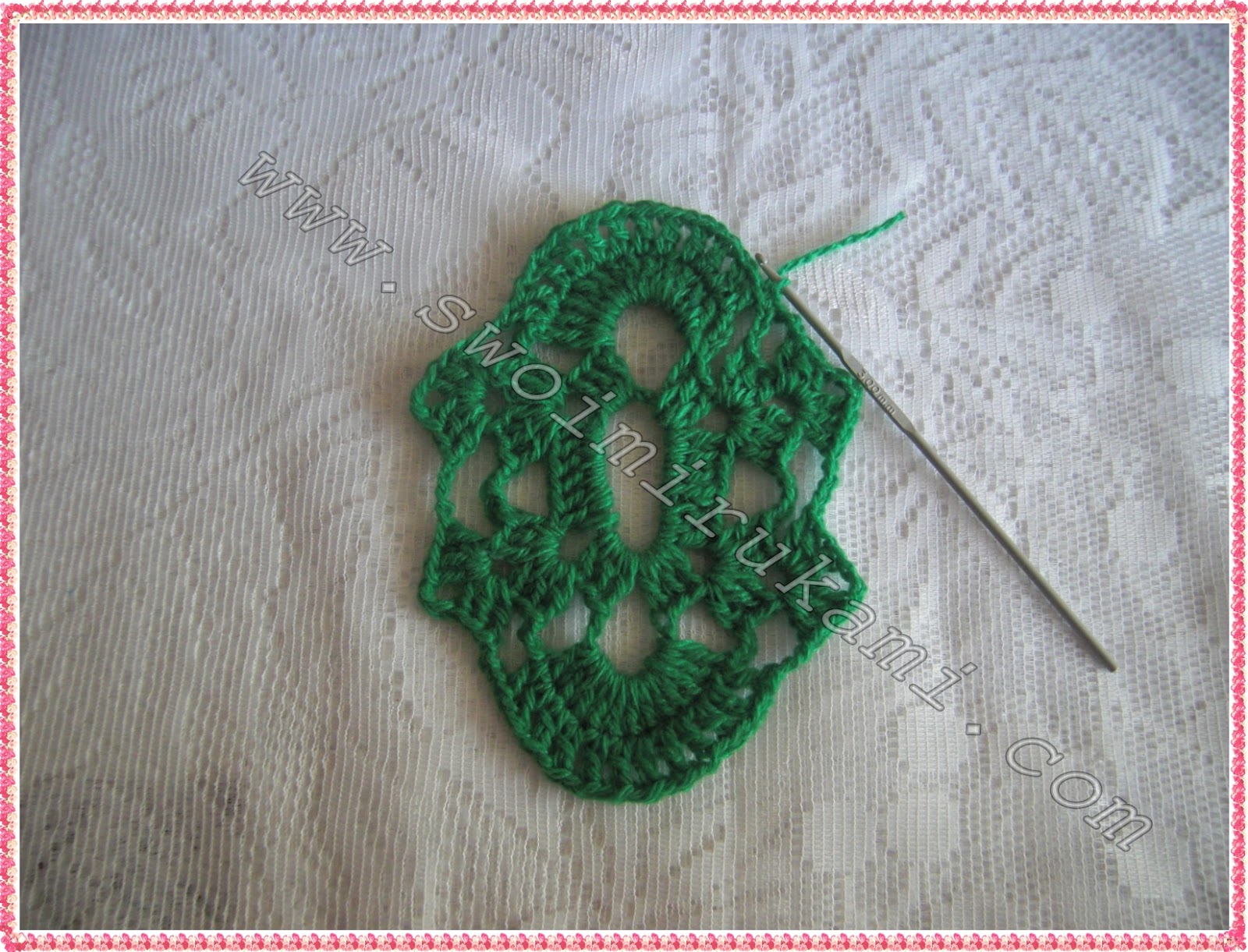
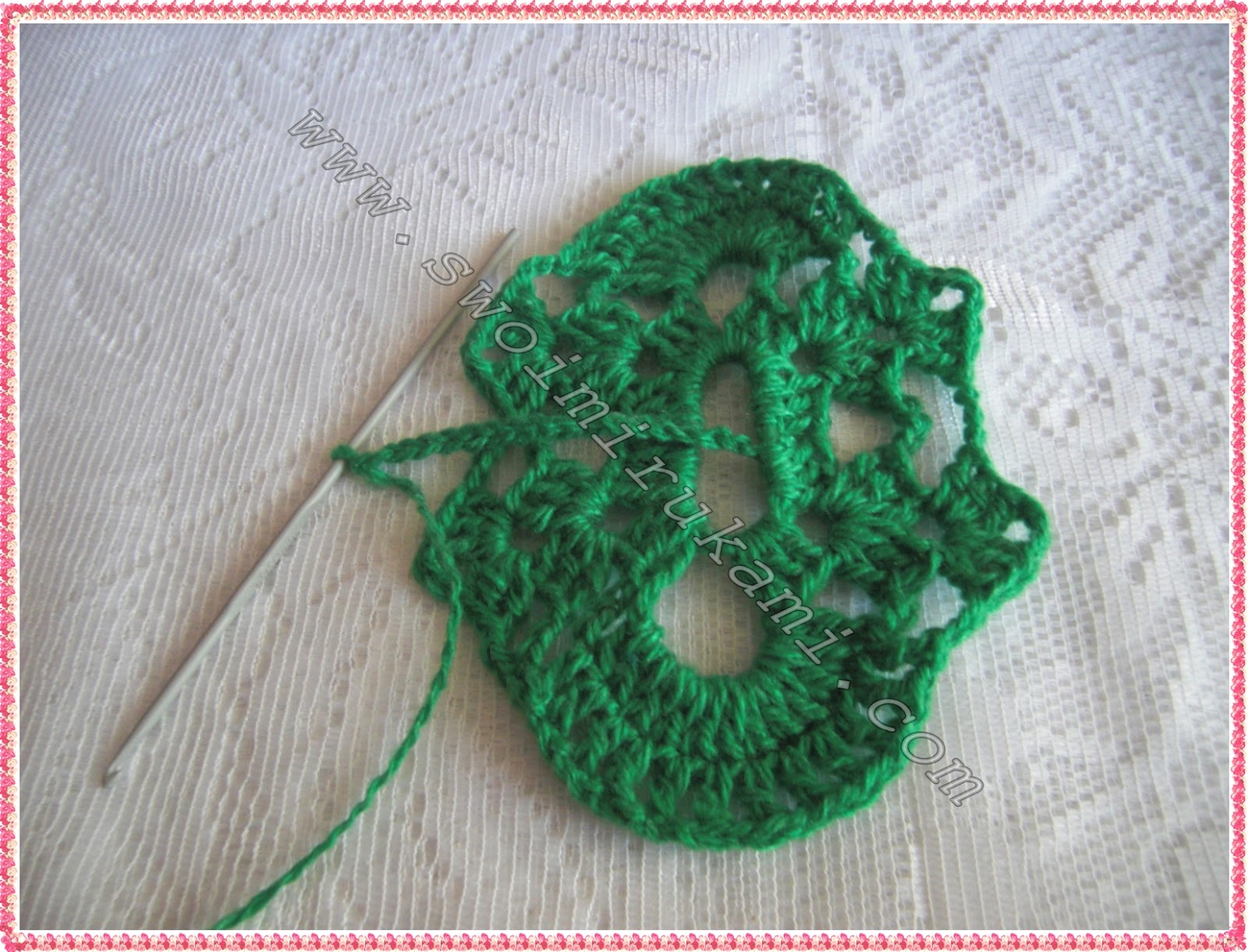
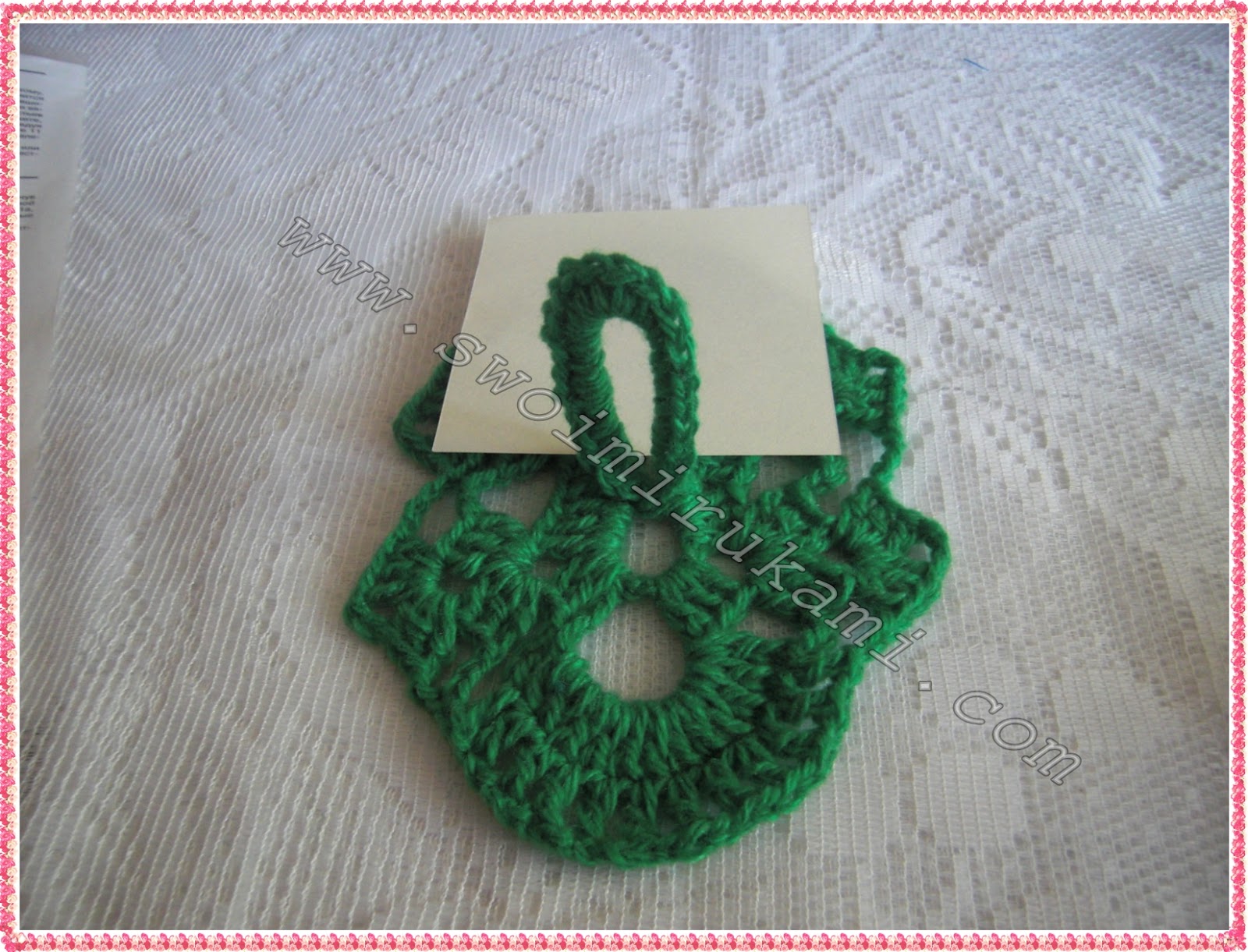
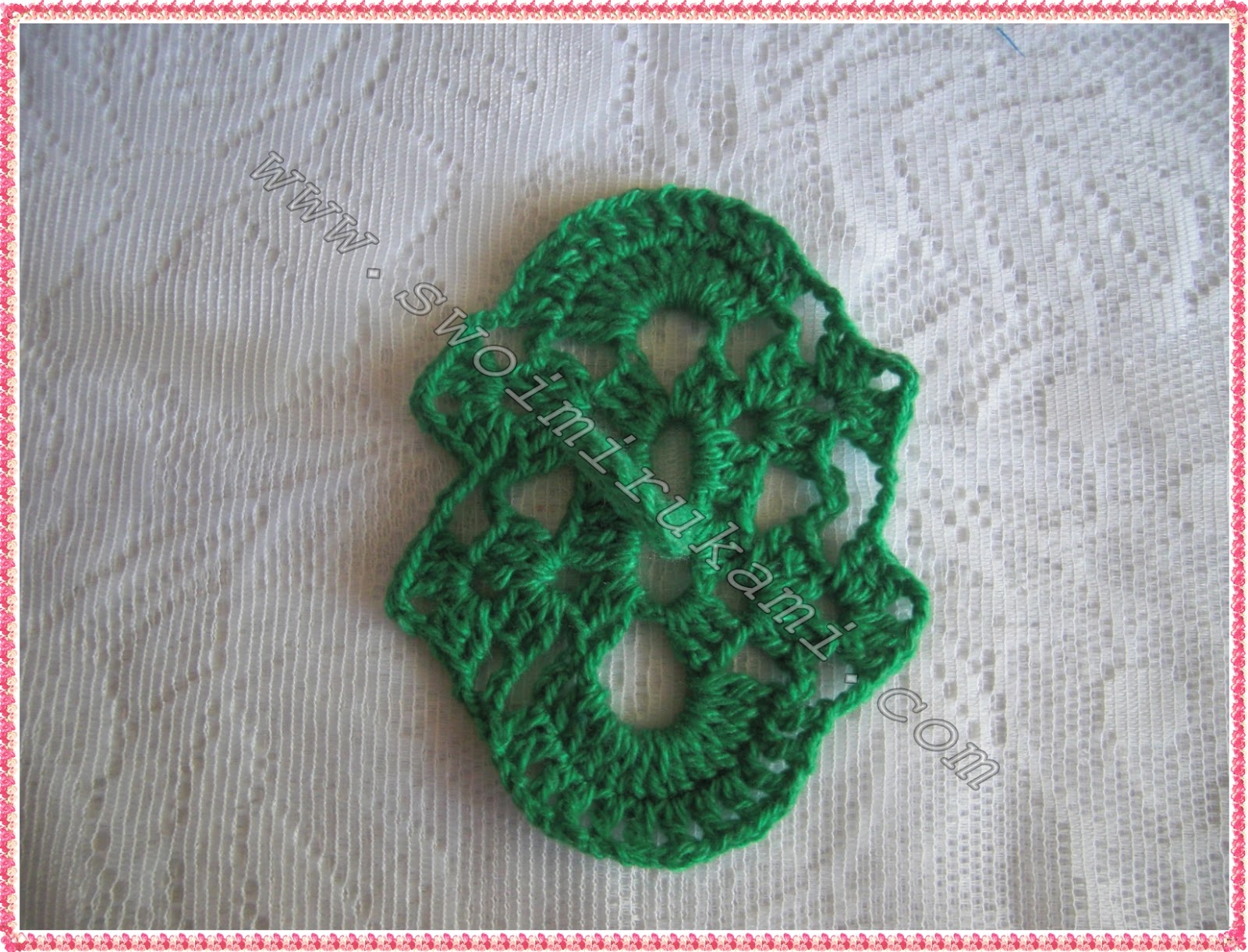
Explanation: In the fourth row, the "nose" of the strawberry is formed. The following rows repeat the knitting - st., 2 ch. in an arc of air loops of the previous row.
Continue working in the order described until the desired size is reached.
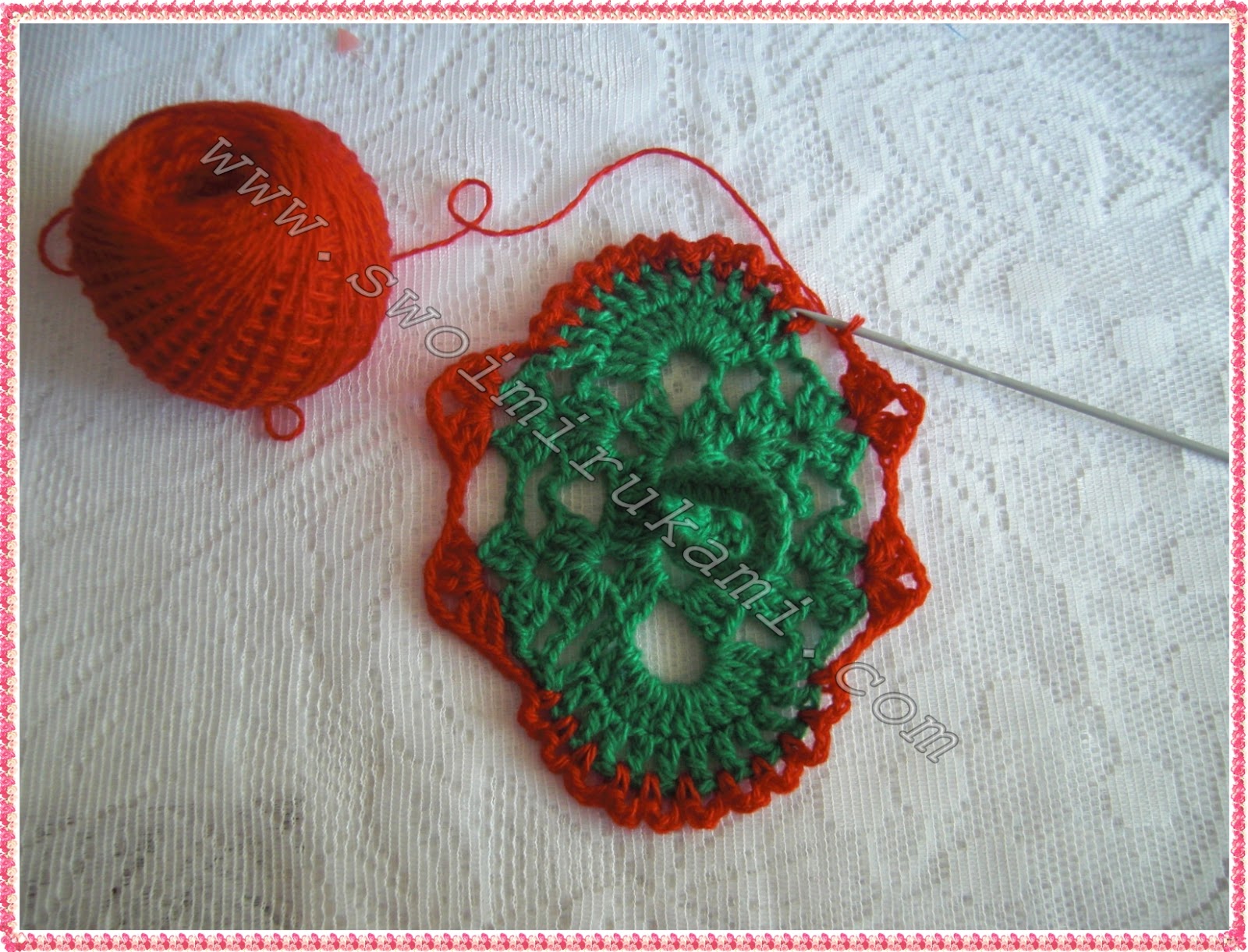
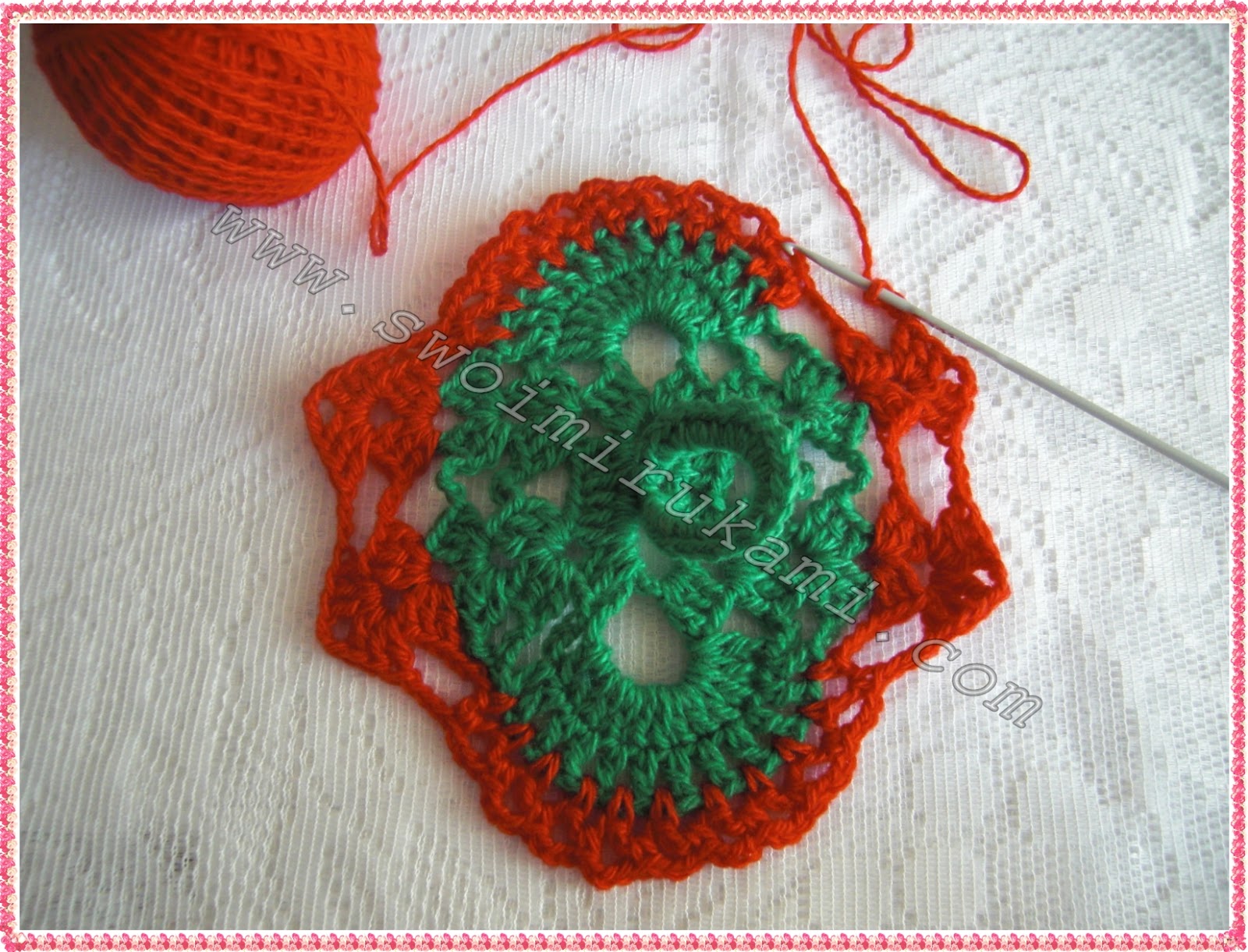
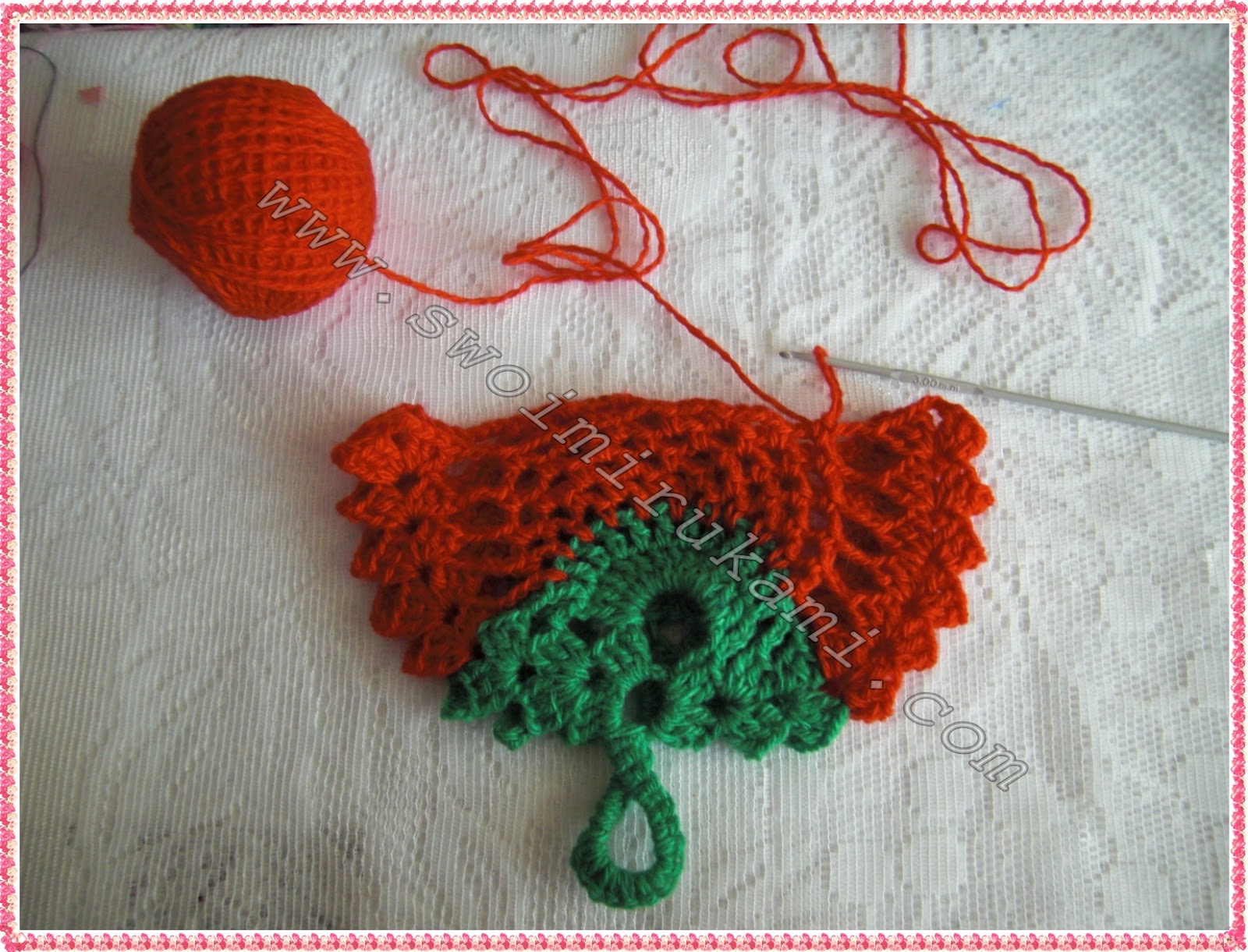
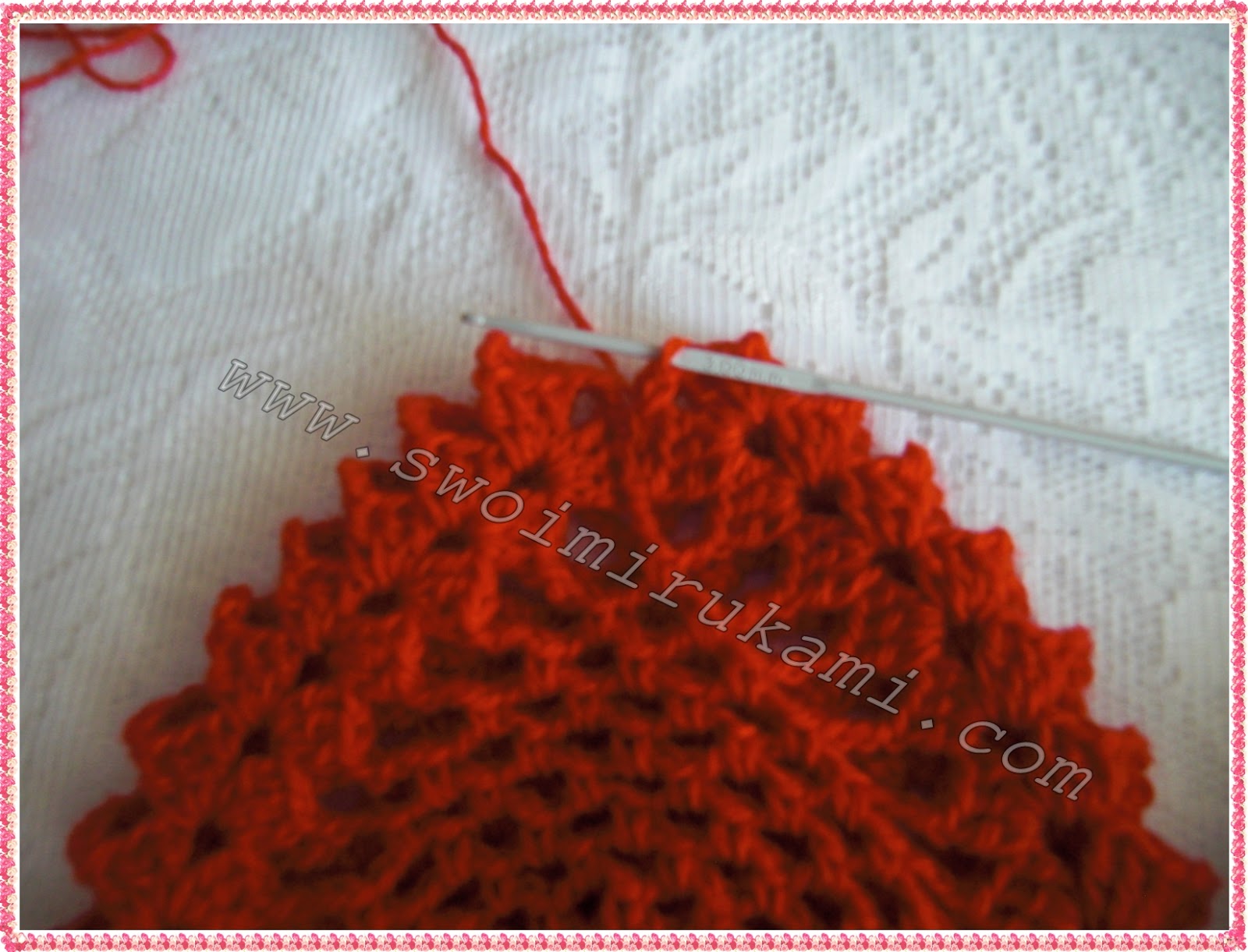
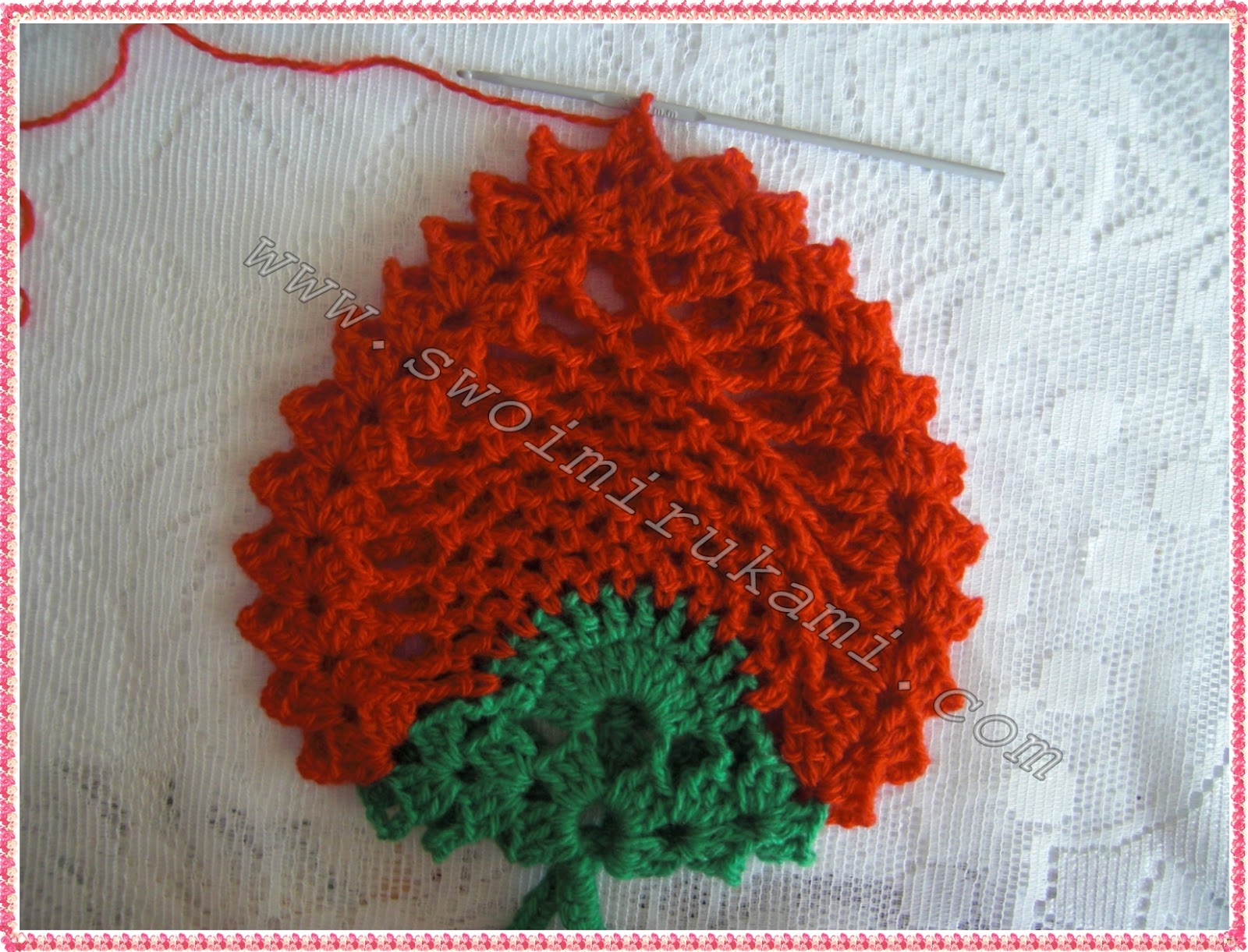
Knitting a leaf for a strawberry potholder
Leaves for decorating the potholder are knitted without breaking the thread according to the description.
- Cast on 13 ch with green thread.
- Start the second row with the second loop from the hook with a single crochet.
- Next 1st, 2 sts, 4 sts2, 2 sts, 1 st and 3 sts into the last loop of the chain.
- Unfold the leaf and knit on the other side 1st, 2 sts, 4 sts2, 2 sts, 1st and finish with a slip stitch.
- Without tearing the thread, cast on a chain of 13 loops and repeat knitting the second and third leaves.
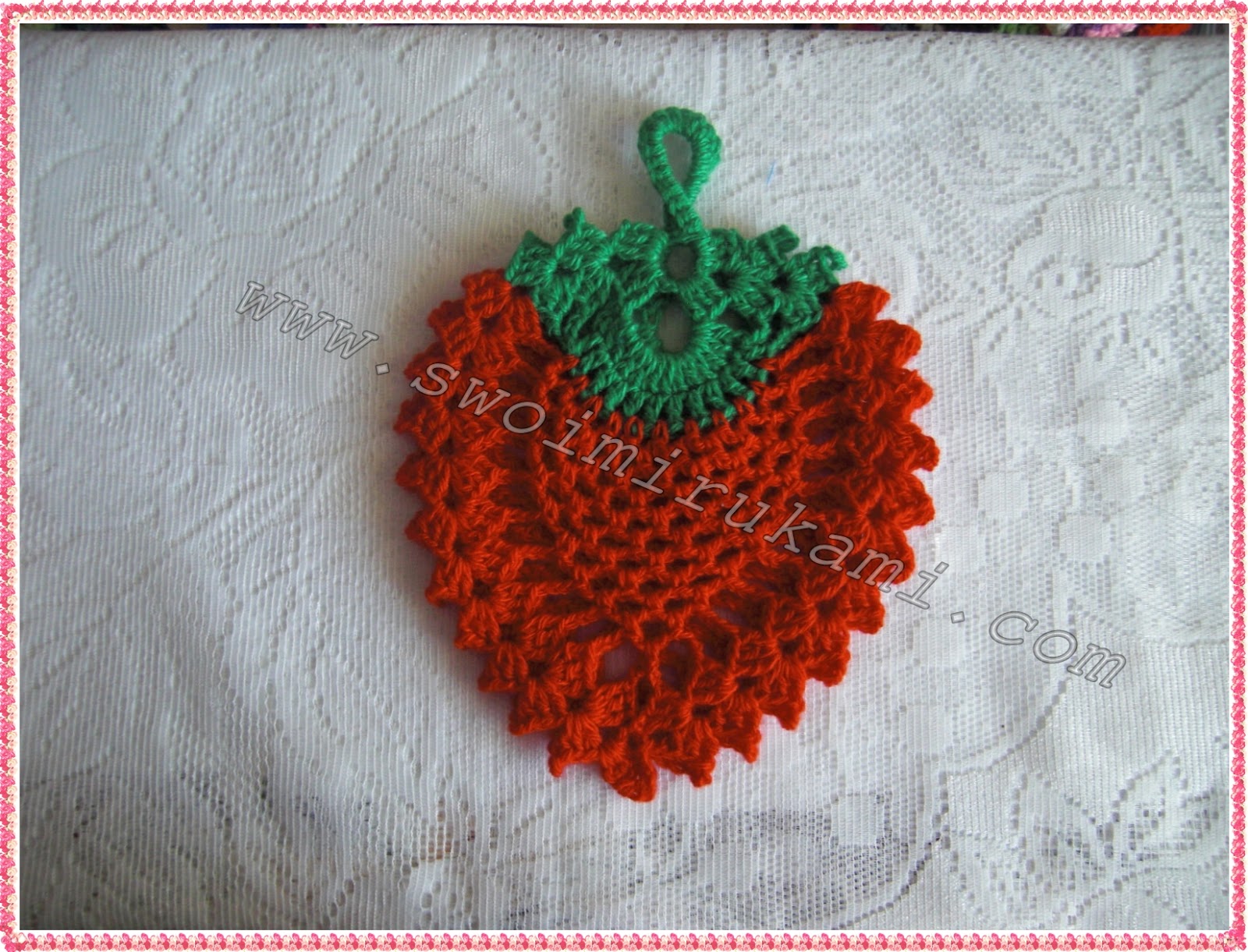
The last leaf can be knitted as the outermost or in the middle. Make a loop of 8-10 ch.
Tack binding and assembly
Using single crochet stitches, tie the edge of the product. You can use red thread or choose a contrasting one. Start tying from the top of the strawberry to hide the unevenness with a leaf.
Arc binding
A nice binding can be made using picot. This can be difficult for beginners. An easier way is to use arches of air loops.
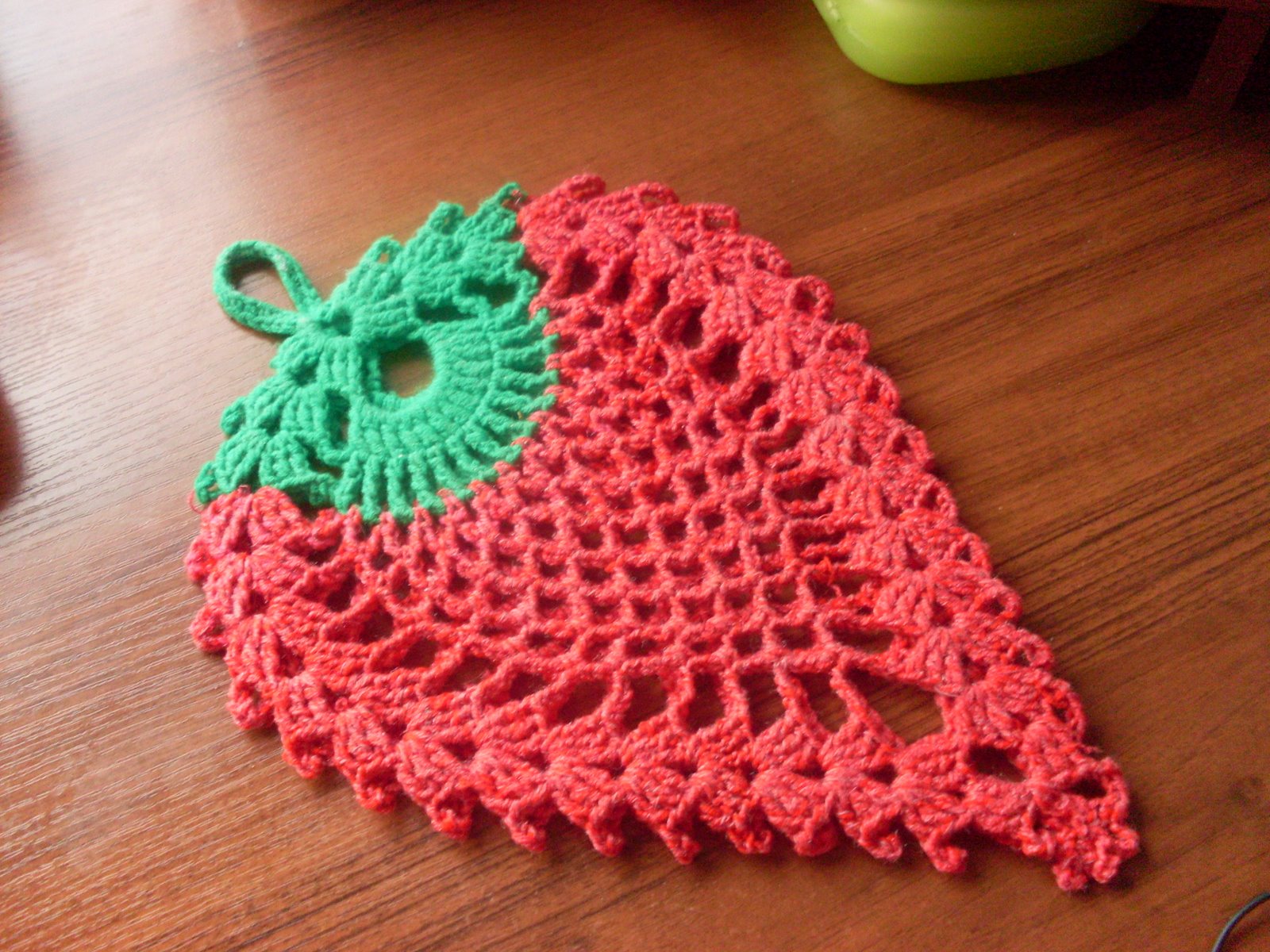
Knitting consists of single crochets and 3 ch between them. The arc starts from the first edge loop and ends in the second. It is advisable not to make gaps.
Similarly, tie the leaves and sew them to the berry. Embroider decorations in the form of check marks or dots on the red fabric with black thread.
Shell harness
An interesting potholder is obtained by using the "shell" pattern for piping the edge. To make the product look neat, start piping with a shell after securing the leaf.
- Knit a single crochet stitch at the junction of the leaf and the berry.
- In the 3rd loop from the hook, knit 5 st.
- Single crochet into the third loop from the base of the shell.
- Continue knitting until the end of the binding.
- Finish with a slip stitch.
- Cut the thread.
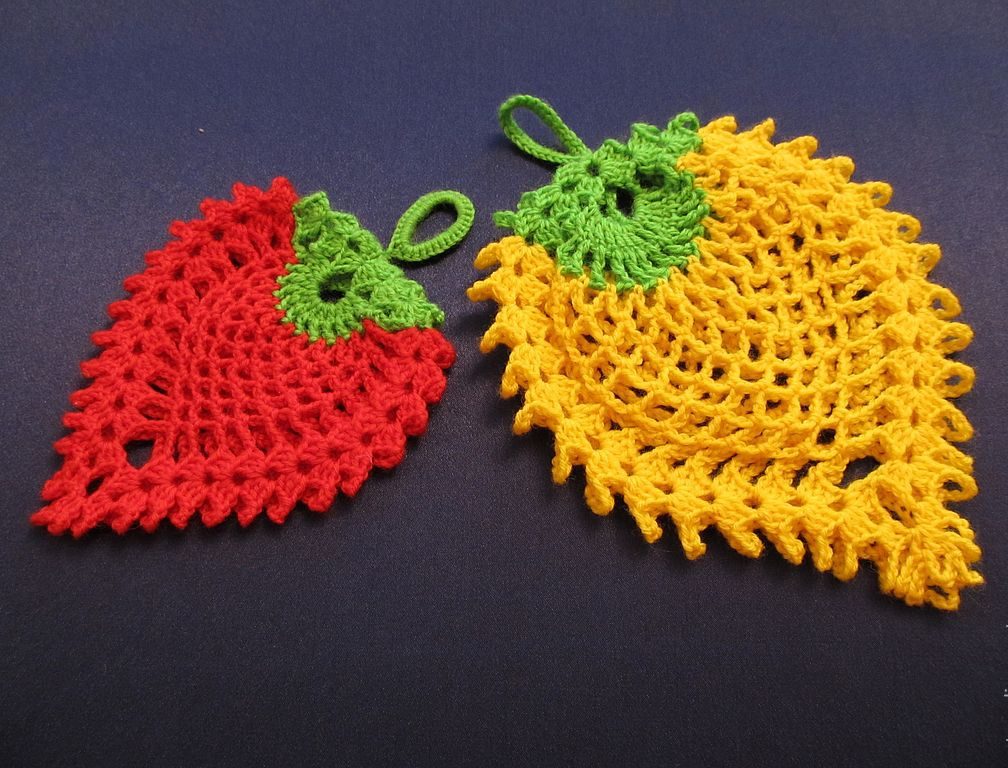
Finishing
Trim off any protruding thread residues at the attachment points and hide the ends in the fabric.
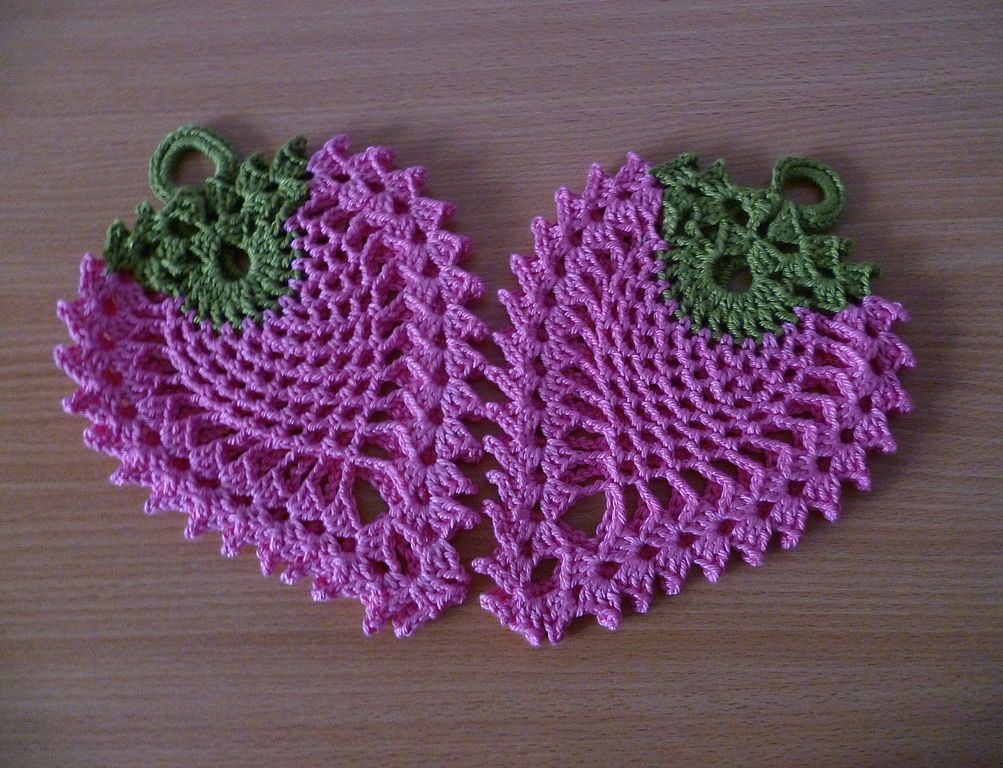
Wash the finished strawberry in warm water with liquid detergent. Dry, spreading it out on the fabric. The knitted product may become deformed at high drying temperatures.
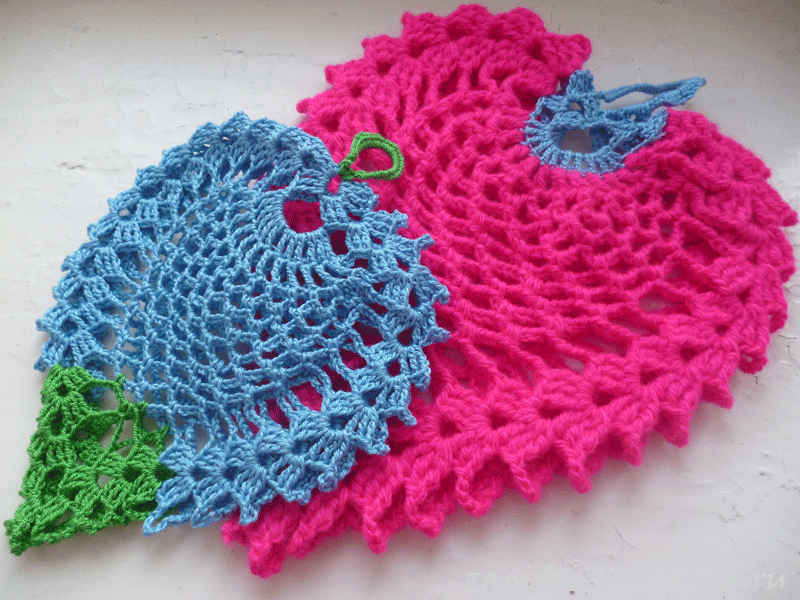
There are many variations of the MK strawberry potholders. A very beautiful model is obtained using the "pineapple" pattern with shell piping. But such a thing is not suitable for practical use. Many holes in the fabric of the product will not protect your hands from a hot pan in the kitchen. Some craftswomen knit double openwork potholders with an insert between the sides of thick flannel fabric.
